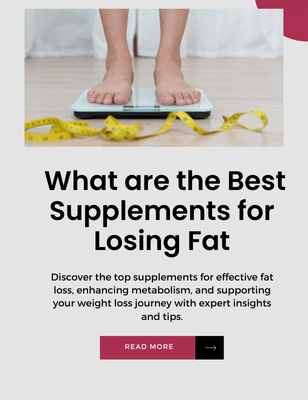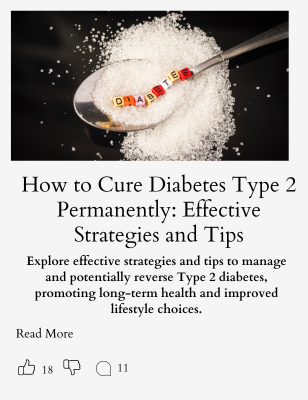Finding a weight loss supplement that actually works can be a daunting task, given the vast market filled with products promising rapid results. Despite the allure of quick fixes, an effective supplement should rely on scientific evidence and be supported by clinical research. Historically, some substances like ephedra were banned due to serious health risks, spotlighting the importance of safety. Today, many look to supplements to augment their weight loss efforts, but discerning which ones are backed by solid science is key.

Weight loss supplements often claim to provide a boost in metabolism, reduce absorption of fat, or suppress appetite. However, not all supplements are created equal and the efficacy of these products can vary widely. It’s crucial for consumers to examine the active ingredients and understand their effects on the body. Some ingredients, such as green tea extract, have shown promise in increasing calorie burn, as studies suggest a correlation between the extract’s antioxidant properties and weight loss. In contrast, other supplements have been criticized for containing hidden or unregulated substances, underlining the need for thorough regulation and guidance from healthcare professionals.
Key Takeaways
- Effective weight loss supplements are grounded in research and should be used with an understanding of their ingredients and effects.
- The regulation and safety of ingredients are critical for ensuring that weight loss supplements pose minimal health risks.
- Consulting with healthcare professionals is essential when considering supplements to ensure they complement a holistic weight loss strategy.
Understanding Weight Loss
When one embarks on a journey to lose weight, it is essential to grasp the constructive interplay between the body’s natural processes and the external factors that influence them. Understanding the foundations of how one’s body releases weight is a critical step towards successful weight management.
The Science of Shedding Pounds
Weight loss occurs when there is a calorie deficit, meaning that the energy expenditure of an individual exceeds their caloric intake. Metabolism plays a crucial role in this process; it’s the mechanism through which the body converts food into energy. Metabolic rate can vary from person to person and is influenced by factors like genetics, age, sex, and muscle mass.
Reducing calorie intake, increasing physical activity, or combining both can create this deficit. The body then taps into stored energy, often in the form of fat, to meet its needs, leading to weight loss. However, it is crucial to approach this process strategically to ensure that muscle mass is preserved and only fat mass is reduced.
Factors Influencing Weight Loss
Several factors can impact the effectiveness of weight loss efforts:
- Lifestyle Changes: They play an integral part in long-term weight management. Incorporating regular exercise and a balanced diet with a focus on whole foods can boost energy expenditure and foster sustainable weight loss.
- Obesity and Overweight: These conditions often require more structured approaches to induce weight loss. A healthcare provider may recommend specific dietary adjustments, increased physical activity, and even medical interventions.
- Metabolism: An individual’s metabolic rate determines how quickly they burn calories. There exist means to modestly boost one’s metabolism, such as muscle-building exercises and avoiding extreme caloric restrictions that can slow metabolism down.
Each body responds differently to weight loss strategies, and what works for one person might not work for another. It is beneficial to consult with healthcare professionals to craft a personalized plan that aligns with one’s unique health profile and weight loss goals.
Nutritional Foundations

Before exploring the effectiveness of weight loss supplements, it’s essential to understand that they are designed to complement the nutritional foundations of a balanced diet. These foundations play a pivotal role in weight management.
Role of Diet in Weight Management
Diet is the cornerstone of effective weight management. A nutrition-rich diet provides the body with vital vitamins, minerals, and dietary fiber, which are necessary for maintaining energy levels and supporting metabolic health. Consuming a variety of nutrients helps to regulate body functions and can contribute to a feeling of fullness, reducing the likelihood of overeating.
Fiber is essential as it aids in digestion and can promote satiety. Foods high in fiber, such as fruits, vegetables, legumes, and whole grains, should be a significant part of one’s daily intake. The inclusion of adequate protein is also crucial; it not only supports muscle repair and growth but also contributes to satiety. While protein powder can be a convenient way to increase protein intake, it’s best utilized when integrated into a balanced diet that includes whole food protein sources.
Equally, the body needs a well-rounded supply of vitamins and minerals to support weight loss. For instance, calcium and vitamin D are essential for bone health, while iron is required for transporting oxygen in the blood. When the body receives proper nutrition, it operates optimally, potentially enhancing weight loss supplements’ effectiveness when used appropriately.
Regulation of Dietary Supplements

Dietary supplements are under consistent scrutiny to ensure public health and safety. The regulatory environment recognizing the distinct nature of these products, demands stringent oversight, predominantly by the FDA.
How Supplements Are Evaluated
In the United States, the Food and Drug Administration (FDA) oversees the dietary supplement market. A crucial piece of legislation guiding this process is the Dietary Supplement Health and Education Act (DSHEA) of 1994, categorizing supplements as food, not drugs. Unlike pharmaceuticals, dietary supplements do not require FDA approval before they enter the market.
However, manufacturers must ensure that their products are safe for consumption and properly labeled. This is where the Office of Dietary Supplements (ODS) comes into play by providing reliable information to enhance the evaluation of supplements. Once a product is on the market, the FDA monitors it through post-market surveillance and mandatory reporting of adverse events. If safety concerns arise, the FDA can take action against the product or company.
Importance of FDA Approval
While dietary supplements do not need premarket approval, the FDA’s role is pivotal in maintaining safety after products are available for sale. They have the power to issue warnings or enforce a recall if a supplement is unsafe. Furthermore, manufacturers making health-related claims must prove that their products are not misleading, as false claims can lead to FDA enforcement actions.
Clinical trials play an essential role in substantiating the claims made by dietary supplement manufacturers. Albeit not mandatory before marketing, such trials can offer credible backing for the advertised benefits of their products. The FDA highly recommends that supplement producers conduct or use relevant clinical trials to ensure their product’s efficacy and safety.
Examining Supplement Ingredients

Weight loss supplements often tout a promise of shedding pounds with ease. When examining the ingredients, understanding their supposed mechanisms and the evidence behind them is vital for informed decisions.
Common Weight Loss Compounds
Green Tea Extract: It is rich in catechins, an antioxidant that can aid in enhancing metabolism. Studies suggest that the catechins in green tea, especially epigallocatechin gallate (EGCG), can moderately increase fat oxidation.
Caffeine: Recognized as a central nervous system stimulant, caffeine may augment metabolism and fat burning. Found naturally in coffee and certain teas, this ingredient may help in small, short-term weight loss.
Fiber: Some supplements contain soluble fiber, which can help increase feelings of fullness and reduce overall calorie intake.
Probiotics: These live bacteria can improve gut health and contribute to weight management by influencing gut hormones related to appetite regulation.
Herbs: Various herbs are marketed for weight loss, but their effectiveness varies and is often supported by limited research.
- Cayenne Pepper: Contains capsaicin, which may boost metabolism.
- Garcinia Cambogia: Suggested to inhibit fat production and suppress appetite.
Vitamins and Minerals: Some supplements include essential nutrients like vitamin B12 and iron that support energy metabolism but are unlikely to cause weight loss on their own unless the individual has an existing deficiency.
Assessing Supplement Efficacy

When evaluating the efficacy of weight loss supplements, one must closely examine the findings of clinical trials. This scrutiny is essential to determine whether these supplements merit scientific research.
Clinical Trials and Outcomes
Clinical trials play a pivotal role in assessing the efficacy of weight loss supplements. Well-designed human clinical trials are potent tools for determining the validity of weight loss claims. Results must demonstrate a significant effect on weight loss, backed by statistical analysis, to be considered compelling. It’s crucial to look at outcomes such as body weight, body mass index (BMI), and waist circumference.
For example, some studies suggest that green tea extract, high in antioxidants called catechins, might aid weight loss by increasing the metabolism of fats. This claim comes with moderate evidence in clinical trials, highlighting its potential for obesity treatment. Specifics on such findings are elaborated in the Mayo Clinic’s discussion on dietary supplements.
| Supplement | Clinical Trial Findings | Outcome Measures |
|---|---|---|
| Ephedra | Banned due to serious side effects and associated health risks | N/A |
| Green Coffee | Moderate-quality evidence points to potential weight loss | Weight, BMI |
| Green Tea | Catechins may increase fat metabolism | Body fat percentage, Waist size |
Research on supplements such as ephedra illustrates the importance of safety in conjunction with efficacy. While once popular, ephedra was banned by the FDA for causing adverse effects, a decision backed by research outcomes linking the supplement to dangerous cardiovascular events.
On the other end of the spectrum, ingredients like caffeine and chlorogenic acid (CGA) present in green coffee have been linked to weight loss. Yet, researchers call for further studies to ascertain the effects of these components on body weight.
It is apparent that although some supplements show promise, thorough, long-term human clinical trials are necessary to draw robust conclusions on their efficacy and safety.
Safety and Side Effects
When considering weight loss supplements, one has to be aware not only of their potential benefits but also the side effects and safety concerns that accompany their use. Each supplement can carry risks, and some have been linked to serious health conditions.
Potential Risks of Supplements
Ephedra, once commonly found in weight loss supplements, was banned by the FDA due to safety issues, including the risk of heart attack and stroke. Current supplements might not contain ephedra but are not risk-free either. They may cause side effects ranging from mild to severe, including high blood pressure, constipation, diarrhea, and an elevated heart rate.
- High Blood Pressure: Certain stimulant-based supplements can lead to an increase in blood pressure.
- Gastrointestinal Issues: Ingredients in some supplements may result in constipation or diarrhea, disrupting normal digestive functions.
- Heart Rate: Ingredients that act as stimulants, such as caffeine, may lead to an elevated heart rate, which can be dangerous for those with heart conditions.
- Liver Disease: There is evidence linking some weight loss supplements to liver disease, highlighting the need for careful consideration and possibly consultation with a healthcare professional.
It’s imperative that consumers research thoroughly and consult healthcare providers before starting any supplement, especially those with pre-existing health conditions. Understanding the adverse effects and how they correlate with one’s health is crucial in making an informed decision about weight loss supplements.
Natural Supplements Versus Synthetic

The debate often boils down to choosing between natural and synthetic options when considering weight loss supplements. Natural supplements are typically derived from plants and are lauded for their components such as green tea extract, garcinia cambogia extract, and others known for aiding weight loss.
Benefits of Natural Ingredients
- Green Tea Extract: Loaded with antioxidants and nutrients, green tea extract impacts metabolic health. Its main active compounds, catechins, and caffeine, can assist in breaking down excess fat and improving calorie burn.
- Garcinia Cambogia Extract: This tropical fruit extract contains hydroxy citric acid, which is thought to help with weight loss by inhibiting fat-producing enzymes in the body and raising serotonin levels, potentially reducing cravings.
- Glucomannan: A natural, water-soluble dietary fiber derived from the roots of the konjac plant, glucomannan can absorb water and become gel-like, promoting a feeling of fullness, which may lead to reduced calorie intake.
- Beta-Glucan: Found in foods like oats and barley, beta-glucan is a soluble fiber that effectively lowers cholesterol and potentially enhances feelings of fullness.
- Raspberry Ketone: The compound that gives raspberries their strong aroma, raspberry ketone, is sometimes touted for its fat-burning capabilities.
- Chlorogenic Acids: Commonly found in green coffee beans, chlorogenic acids may slow the absorption of carbohydrates and act as an antioxidant.
Natural supplements are respected for their wellness benefits beyond weight loss. They often have a lower likelihood of side effects, provided they are consumed at recommended dosages. However, as with any supplement, the efficacy and safety of natural ingredients should be supported by credible research, and individual health considerations must be considered.
Specific Weight Loss Supplements
When exploring weight loss supplements, it’s important to look at ingredients that have been clinically studied and shown to aid in weight loss through various mechanisms, such as enhancing metabolism, suppressing appetite, or increasing fat oxidation.
Green Tea and Caffeine
Green tea extract and caffeine are often combined in weight loss supplements for their potential synergistic effects. Green tea is rich in antioxidants called catechins, which may boost metabolism and assist in fat oxidation. Caffeine is known to stimulate the central nervous system, increasing alertness and energy expenditure, as well as promoting the release of norepinephrine, a hormone that can help to break down fat. Some studies suggest that the combination of green tea extract and caffeine can lead to modest weight loss, especially when paired with other lifestyle modifications.
- Ingredients: Green Tea Extract, Caffeine
- Mechanisms: Metabolism Boosting, Fat Oxidation
- Potential Benefits: Increased Caloric Burn, Enhanced Alertness
Fiber Supplements and Satiety
Fiber supplements contribute to weight loss primarily by enhancing the feeling of fullness, or satiety, which can lead to a reduced overall caloric intake. Fiber can absorb water and expand in the digestive tract, slowing down digestion and prolonging the sensation of being full. This can help control appetite and reduce snack cravings. Soluble fiber, in particular, may also have a positive effect on fat metabolism and aid in the maintenance of lean muscle mass when consumed as part of a calorie-controlled diet.
- Ingredients: Inulin, Psyllium Husk
- Mechanisms: Appetite Suppression, Digestive Health
- Potential Benefits: Reduced Appetite, Support for Healthy Digestion
Herbal Extracts and Metabolism
Various herbal extracts are included in weight loss supplements due to their proposed effects on metabolism and appetite control. Ingredients like green coffee extract, which contains chlorogenic acids, are believed to influence glucose and fat metabolism, leading to potential reductions in body fat. Others may target neurotransmitters like serotonin to help regulate mood and appetite, indirectly aiding in weight management by curbing emotional eating.
- Ingredients: Green Coffee Extract, Garcinia Cambogia
- Mechanisms: Metabolism Enhancement, Appetite Regulation
- Potential Benefits: Fat Reduction, Appetite Control
Lifestyle and Supplemental Synergy

In the weight loss journey, supplements alone are not a silver bullet. One must consider the integral relationship between consistent lifestyle modifications, specifically increased physical activity, and supplements’ role in augmenting energy and muscle development.
Combining Supplements with Exercise
Exercise is fundamental in a weight loss, aiding calorie burn and muscle building. Incorporating weight loss supplements can potentially enhance this process by boosting energy levels, which could lead to more intense workouts. For instance, Green tea extract is widely recognized for its ability to support fat burning, which may be amplified when coupled with regular physical activity.
- Integration: Integrate supplements supported by scientific research with a well-structured exercise program.
- Example: Caffeine supplements can improve focus and energy during workouts, possibly leading to greater intensity and duration.
- Muscle Maintenance: While in a calorie deficit, supplements that aid in preserving muscle mass may enhance overall physique and metabolic health.
- Example: Protein powders can be important for their role in muscle repair and growth post-exercise.
Benefits are best realized when supplements complement rather than replace the fundamental components of weight loss: a cycled exercise routine and a balanced diet. It is essential to consult healthcare professionals to tailor the right combination of supplements and exercise according to individual health conditions and goals.
Consulting Healthcare Professionals

Before considering weight loss supplements, it’s imperative to consult healthcare professionals to ensure safety and appropriateness based on individual health status and goals.
When to Seek Medical Advice
Individuals should seek medical advice before starting any weight loss supplement regimen, particularly if they have pre-existing health conditions such as heart disease or diabetes. Healthcare professionals can provide guidance tailored to a person’s medical history, current health, and specific weight loss objectives. It’s crucial for those who are obese or overweight to discuss with a doctor the potential risks and benefits of using dietary supplements for weight loss.
A doctor can help discern whether a supplement is necessary, advise on the most effective dosage, and monitor for any side effects. Professional guidance is essential if an individual is taking other medications, to avoid harmful interactions. The recommendation of a healthcare provider holds considerable weight, as they are knowledgeable about the latest research and clinical guidelines on weight loss products and strategies.
Frequently Asked Questions
In this section, esteemed readers will find answers to some of the most commonly inquired topics about weight loss supplements. These insights provide clarity on what might work for individual needs and goals.
Which natural supplements are best for effective weight loss?
Green tea extract is widely recognized for its potential in aiding weight loss. Its high concentration of antioxidants called catechins is thought to enhance the fat-burning process.
What are the top supplements to help with weight loss and muscle gain?
For individuals looking to lose weight and gain muscle, a combination of protein powders, branched-chain amino acids (BCAAs), and omega-3 supplements may be beneficial in supporting these goals.
Can you recommend weight loss supplements specifically effective for women?
Certain supplements like CLA (Conjugated Linoleic Acid) and caffeine have been suggested to support weight loss in women when aligned with a healthy lifestyle.
Which weight loss pills are recognized for targeting belly fat?
Supplements containing ingredients like green tea extract and soluble fiber have been associated with reductions in visceral fat, commonly known as belly fat.
What are some of the safest weight loss pills available?
The weight loss pill Alli (Orlistat) is noted for its safety profile as it is the only over-the-counter weight loss supplement approved by the FDA.
What vitamins support weight loss for individuals over 50?
Vitamins such as vitamin D, calcium, and magnesium might play a role in weight management, especially for those over the age of 50. It is important to ensure adequate nutritional intake as metabolism changes with age.






















